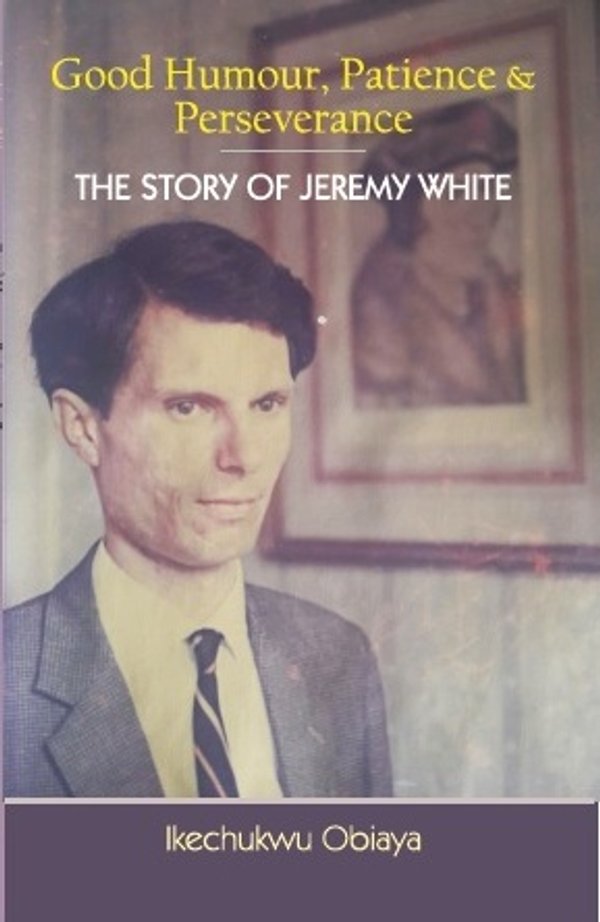
by Ikechukwu Obiaya
Writing a biography, any biography, is necessarily a process of exploration and discovery. The biographer sets out to explore the life of another, to discover the rationale for that person’s way of being and the motivations for his/her actions. However, it sometimes happens that the exploration of another person’s life leads the biographer down a path of self-discovery because the life of the biographee becomes a mirror in which the biographer examines the contours of his own life. In this context, the analogy of the British biographer, Richard Holmes, makes perfect sense. Holmes likened the biography to “a handshake down the years, that can become an arm-wrestle.”
Writing the biography of Jeremy Joyner White has involved for me a process of moving from a handshake to engaging in an arm-wrestle, albeit a gentle one, with Jeremy. The handshake began with trying to respond to the obvious first question: “Who was Jeremy?” Although I had heard quite a bit about Jeremy, I never met him. My discovery of him, therefore, took place through the eyes and experiences of others, and what was most striking was the very high esteem in which everyone seemed to hold Jeremy. He came across as a gentleman, a scholar engaged in the same profession as I. All the accounts presented him as an uncomplicated person, kind and easy going, hardworking and dedicated.
However, there was nothing dramatic about Jeremy; his life did not contain any of the extraordinary escapades that the bards have put to song about the exalted characters of history. In trying to answer the question of what was special about Jeremy, his very ordinariness stood out. This was where my arm-wrestling with Jeremy began. It is easy to distance oneself from the extraordinary exploits of fantastically endowed persons and plead off attempting to emulate such persons with the excuse that “I could never be like that; I do not have such abilities.” But it is quite a different matter when the admired person is just like us. Through the eyes of others, I witnessed Jeremy’s heroism in living the ordinary details of each day. His struggles were the same as those of the average Joe, and he had to deal with challenges I could identify with and to overcome setbacks common to all of us. But he faced it all with determination, good humour, fortitude, patience and true self-giving – and down through the years, he challenged me to follow his example.
A truly notable quality of Jeremy, as I have learnt, was his ability to pass unnoticed. He could be said to be an embodiment of the maxim of St. Josemaría, to do the work of three thousand making the noise of three. Jeremy contributed a lot to the development of Opus Dei in Nigeria, but he did so through very quiet and intense work. He attained results not through flashes of outstanding brilliance but through constant and consistent work, which was often of a plodding and monotonous nature. But with his perseverance, he taught me some valuable lessons, especially when it came to writing the biography. In the moments of frustration and mental blockage that come with writing, I learnt to turn to him for assistance, and I try to do so with regard to my academic work. I feel that having gone through some of those same challenges, he will understand me perfectly.
I have lost the match in this arm-wrestling contest, and I am very happy to have done so. I am also gratified at the thought that this short biography will lead others into similar confrontations with Jeremy.
The biography is available at Criterion Publishers, Nigeria
Dr. Ikechukwu Obiaya is the Dean of the School of Media & Communication at the Pan-Atlantic University, Lagos, Nigeria.
